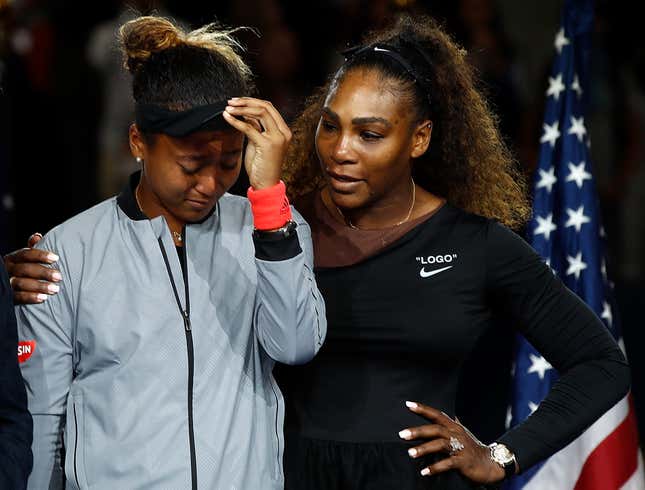
We’ve all been there.
Sometimes the demands of our jobs become too much, and before we’re able to preserve our well-being in whatever ways we deem fit, our mental health suffers as a consequence.
Professional athletes are no different. But in a cruel twist of fate, the immense scrutiny they face that often contributes to their own mental health struggles is not only part of the job, but a contractual obligation.
As we reported at The Root, last week, tennis superstar Naomi Osaka expressed her intention to abstain from media interviews during this year’s French Open citing her need to protect her mental health.
“I’ve often felt that people have no regard for athlete’s mental health and this rings true whenever I see a press conference or partake in one,” the No. 2 ranked tennis star wrote on Instagram. “We’re often sat there and asked questions that we’ve been asked multiple times before or asked questions that bring doubt into our minds and I’m just not going to subject myself to people that doubt me.”
But once the powers that be got wind of her refusal to conduct interviews with the media, she was assessed a $15,000 fine for failing to appear at a press conference related to the tournament and threatened with even harsher penalties should her media blackout continue. So instead of continuing to subject herself to further discipline, and instead opting to prioritize her mental health, Osaka has pulled out of the French Open entirely.
In an Instagram post on Monday, the four-time Grand Slam champ expressed her desire not to become “a distraction” and revealed that her battle with depression has been a long-standing issue.
“I have suffered long bouts of depression since the US Open in 2018 and I have had a really hard time coping with that,” she wrote. “Anyone that knows me knows I’m introverted, and anyone that has seen me at the tournaments will notice that I’m often wearing headphones as that helps dull my social anxiety.”
As someone who also struggles with depressive episodes and crippling social anxiety, each of which have only been amplified by the ongoing global pandemic, I empathize with Osaka entirely—as have some of her peers in the sports world, such as Serena Williams, WNBA legend Lisa Leslie, and Olympic gymnast Laurie Hernandez.
“I feel for Naomi. Not everyone is the same. I’m thick. Other people are thin. Everyone is different and everyone handles things differently,” Williams told reporters after her match on Monday. “You just have to let her handle it the way she wants to and the best way she thinks she can. That’s the only thing I can say: I think she is doing the best she can.”
On Twitter, other professional athletes showered Osaka with comfort and love.
“You shouldn’t ever have to make a decision like this,” four-time NBA champ Steph Curry tweeted. “But so damn impressive taking the high road when the powers that be don’t protect their own.”
Cleveland Cavaliers forward Kevin Love, who has been a huge advocate of addressing mental health within professional sports, also offered his support.
And tennis greats Billie Jean King and Martina Navratilova did the same:
Osaka also received plenty of love from Twitter users who stood up for the 23-year-old tennis superstar.
“Naomi Osaka is demonstrating the power of refusal,” tweeted writer Breya M. Johnson. “To refuse work at the expense of our health, wellness, & more. To refuse humiliation under the guise of professionalism. Refusal is beautiful. It’s even better when we do it collectively. Support her and workers who aren’t rich.”
Unfortunately, for Osaka, media availability is something you’re contractually bound to in being a professional athlete. At the end of the day, these various leagues, associations, and organizations have a product to promote and if the biggest names in their respective sports are on board with that, it naturally creates all types of chaos. Hopefully, she’s able to establish a compromise that not only fulfills her contractual obligations, but allows her to preserve her peace of mind.

